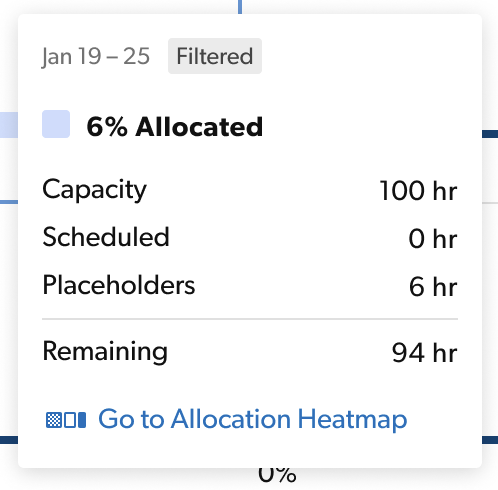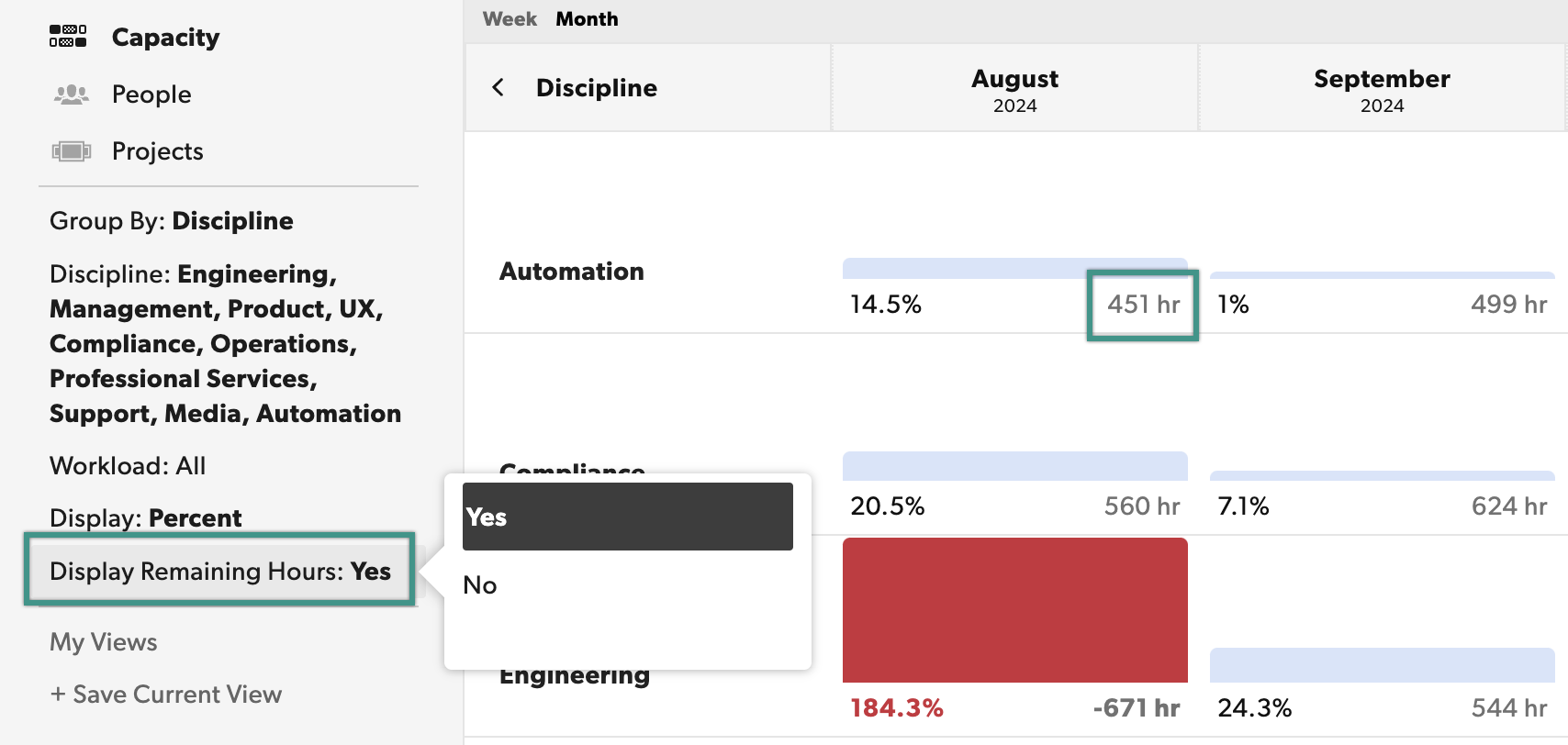Applies to
Capabilities
Who can use this capability
Resourcing Administrators, Portfolio Editors, People Schedulers, Portfolio Reporters, Portfolio Viewers, and Projects Editors can use capacity view.
See your team's availability in capacity view
Capacity view helps you monitor capacity and bandwidth across all your teams so you can plan, manage and allocate resources more efficiently.
You can use capacity view to identify over or under-resourced allocation across your organization, spot availability to take on new work, and forecast hiring needs to make efficient staffing decisions. When you change assignments or projects on the schedule, the cells in capacity view automatically update in real time.
Use capacity view
- On the top navigation bar, select Schedule.
- In the left panel, select Capacity.
In capacity view, you can:
- Review team capacity and utilization
- View capacity and utilization by month or week
- Group data by role or discipline
- View utilization and capacity data in percentage, FTE, or hours
- Filter by one or more projects to see that project's impact on the team's capacity across the organization
In capacity view, your selected group by setting appears on the left column, with the team's capacity across the monthly timeline.

Understand capacity view
- Light blue cells indicate that the team is either at 100% capacity or can take on additional work.
- Light red cells indicate the team is above 100% but below 150% utilized.
- Dark red cells indicate the team is over 150% utilized.
- A dark blue line in a cell with 0% allocation indicates that the team has the capacity to take on work.
- A dark blue line in a cell with no resources indicates no one assigned the discipline or role.
- If a discipline or role has only placeholders assigned, the cell for that group will show no resources. Open the tooltip for information on the assigned placeholders.
- Use the Workload filter to see capacity across people and placeholders.
- Select a cell to see a tooltip with more information about that team's availability and workload.
- In the tooltip, select Go to Allocation Heatmap to go to people view. In people view, you will see how each team member is utilized. People view retains the discipline or role selected in capacity view and filters the list for people on that team.

- Select Assignment Details on the left panel to learn more about assignments.
Toggle between monthly and weekly cadence
You can view your team's capacity monthly or weekly. Select Week or Month at the top of the screen. Cells will show capacity and utilization for the view you've selected.

Use labels to access different capacity views
Toggle between labels ( FTE, Hours, or Percent) to view your team's utilization and capacity.
On the left sidebar, select Display and then select the label you want to use. For each label, utilization is calculated as follows:
- FTE
- Uses work hours in a day and work days in a week settings
- Utilization = scheduled hours / available hours
- FTE = Utilization hours / (work hours in a day * work days in a week)
- Hours
- Utilization = Scheduled hours / available hours
- Percent
- Utilization percent = Scheduled hours / available hours * 100
Display remaining hours
On the display menu, select Yes or No to quickly see how many hours remain in the team’s capacity.

Use project or people filters
Project filter
Use the project filters in the Capacity view to see how project workload is impacting your team. You can filter projects by:
- Project
- Project Access
- Project Owner
- Project Type
- Client
- Custom filters
People filters
Use the people filters in Capacity view to quickly see utilization for specific teams or people. You can filter people by:
- Role
- Discipline
- Team Member
- Approvers
- Location
- People tags
- Billable
- Custom filters
Save your capacity view
Create the specific capacity view you need using filters. Then save your current view using the Save your view button at the top of the filters menu. Resourcing Admins can save their views in the Shared view list, and anyone in their organization can use these saved views.